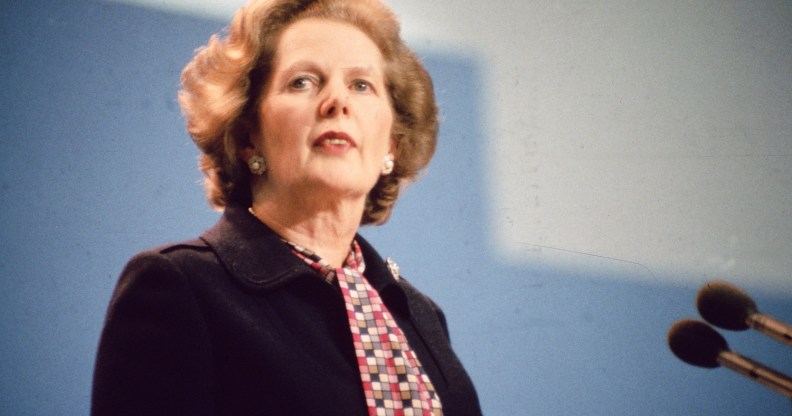Thatcher claimed AIDS awareness campaign could ‘harm morals’

Margaret Thatcher tried to block all mention of anal sex in government advice amid the AIDS epidemic, documents have revealed.
The outbreak of HIV/AIDS in the 1980s claimed the lives of thousands of people across the UK, amid a wider global epidemic.
Conservative Prime Minister Margaret Thatcher has been criticised even by her own former ministers for her handling of the crisis – and newly-unsealed documents appear to prove her role in blocking action.
The newly-released private documents in the National Archives show that in 1986, Health Secretary Norman Fowler had put proposals to the PM for full-page newspaper adverts giving advice about how to avoid HIV transmission.
The ‘Don’t Die of Ignorance’ adverts would explain, under the heading ‘Risky Sex’, that unprotected anal sex carries a disproportionately high risk of transmission.

However, the PM herself intervened – writing in a memo: “Do we have to have the section on risky sex? I should have thought it could do immense harm if young teenagers were to read it?”
Policy adviser David Willetts – who later served as a minister under David Cameron – also attack the plan, describing the proposed ads as “explicit and distasteful”.
Documents reveal she later also complained about TV ads that mentioned anal sex.
She wrote: “I remain against certain parts of this advertisement.
“I think the anxiety on the part of parents and many teenagers who would never be in danger from AIDS exceeds the good it may do… adverts where every young person will read and hear of practices they never knew about will do harm.”
Despite the political setback, Lord Fowler became a vocal campaigner on HIV/AIDS – and has spoken on other occasions about having his wings clipped by Mrs Thatcher.
He told PinkNews last year that Thatcher warned him against becoming the “minister for AIDS” due to his work on HIV/AIDS.
The comments also match up with the claims of Edwina Currie, the junior health minister who helped Lord Fowler launch the ‘Don’t Die of Ignorance’ campaign in 1986.
She recalled: “When we went and told Mrs Thatcher about it, she pursed her lips and said, ‘Hmm, do you really think this is absolutely necessary?’
“And we said, ‘Yes Prime Minister, this is necessary, people are dying in large numbers and they’re young health people in the prime of life’.”
Ms Currie said Thatcher replied: “If you really think it’s necessary, go ahead, but I don’t want anything to do with it.”


